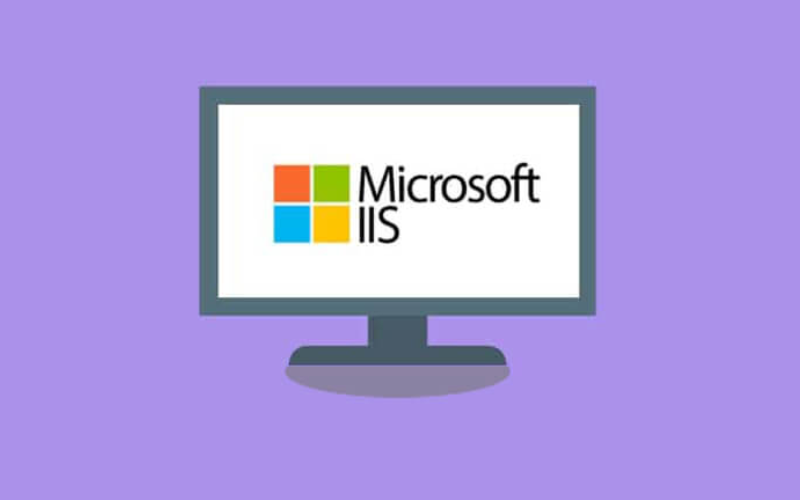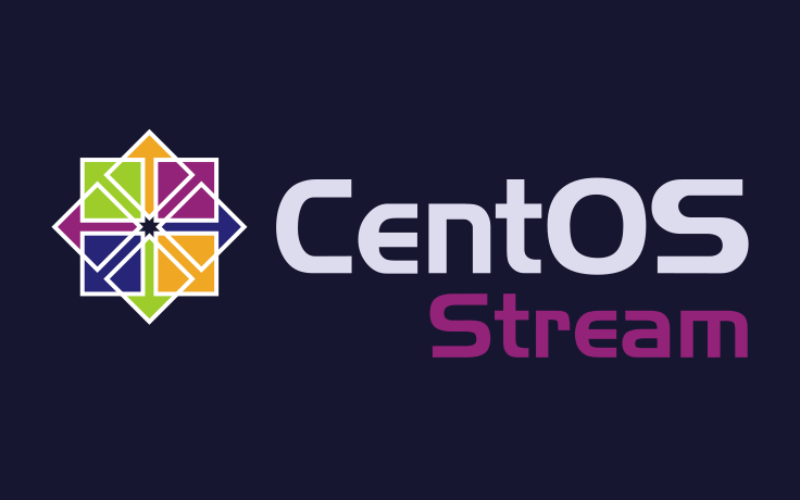A web server is used to
store and transport the content of a website. A web server is used to send all
the text, video, application data, graphics, and other content that users may
require. The web server requests the website's data each time a user clicks a
link or begins a download.

A web server is necessary
for every website for business. Without a web server, your website can be utilized
as an offline file on a computer, but it cannot be used to start the World Wide
Web.
Types
of web servers
When a client requests a
certain website, a web server delivers it to the client.
Although various websites
may be stored on the same or distinct web servers, this has no bearing on the
website that you are currently viewing on your computer.
In order to avoid having a
web server for every user, which would be nearly impossible given the current
state of the world's population, one web server can accommodate numerous users
at once.
Both free and commercial web
servers are widely available on the market. let’s review some of the major
ones:
📋 Apache
The majority of web server
computers in use today run this web server, making it the most widely used web
server.
The Apache Software
Foundation created the Apache HTTP web server. Because it is open-source
software, we have access to it and can modify its code to suit our preferences.
Almost all operating
systems, including Linux, MacOS, Windows, etc., allow for the simple
installation and use of the Apache Web Server.
The most frequently hacked
web server is also Apache, since it is used extensively by large organizations
to run their websites.
Depending on the
requirements of your website for business, it may still be a suitable fit for
you, despite being a little slower than other types of web servers such as
Nginx and IIS.
Due to its modular design,
an Apache web server is simple to customize. Since it is an open source
project, you can add your own modules to the server to customize it to your
needs.
When compared to other web
servers, it is quite stable, and any administrative problems are simple to fix.
Apache may be successfully installed on various platforms.
Apache is frequently used
with the WSGI, PHP, and Python languages. It offers built-in management
functionality for SSL certificates and is compatible with a wide range of
server technologies.
In comparison to prior
versions, the Apache's most recent versions give you the ability to handle more
requests.
📋 Microsoft
IIS
Next on our list of types of
web servers is IIS (Internet Information Services), which was created by
Microsoft as a high-performing web server. Because of its close ties to the
operating system, it is relatively simpler to manage.
It contains all the
functionality of the Apache HTTP Server, with the exception that its code is
not available because it is not open-source software, which prevents us from
altering it to meet our needs.
With support for many
various web technologies and protocols, IIS is a robust and feature-rich web
server. IIS, which is related to other Microsoft products like Active Directory
and Exchange, is extensively used in enterprise environments.
Because of its performance
and durability, IIS is widely used by both small and large businesses globally.

In addition, because of how
well it connects with other Microsoft products, including the.NET framework, it
is also one of the most popular types of web servers for programmers developing
web-based programs on the Windows platform.
However, IIS from Microsoft
is not free. This indicates that there are some restrictions on its
development, and users are unable to alter it to meet the needs of specific
projects. The project needs to be adjusted to accommodate it.
📋 Jigsaw
Jigsaw is a Java application
that can execute both PHP and CGI (common gateway interference) scripts.
It was created as an
experimental server to showcase the new web protocols; it is not a fully
functional server. Because it is open-source software, we can access its source
code, make changes as needed, and publish our own module (the modified code).
As long as the device
supports Java language and Java changes, it can be installed on any device.
CGI, SSL/TLS encryption, and
server-side programming languages such as PHP and Python, and are among the features
this server offers. Furthermore, it has built-in support for virtual hosting,
allowing multiple websites to be hosted on a single server.
Jigsaw is supported by the
majority of operating systems, including Linux, macOS, and Windows. Although it
is a decent alternative for developers who wish to learn about HTTP protocols
and web server technologies, it might not be suitable for usage in production
situations due to the lack of active development and support.
📋 Nginx
Nginx, another popular
open-source web server on our list of types of web servers, is famous for
having excellent performance and utilizing few resources.
Nginx, which is usually used
with Apache to share the load between the two servers, is widely used to host
high traffic websites. It’s also a great choice for hosting several websites
from a single server because of its exceptionally lightweight construction and
minimal memory usage.
Nginx has gained popularity
in recent years and some experts anticipate it will eventually overtake Apache
on the internet because of its greater performance and architecture.
This server employs an
asynchronous event-driven approach (as opposed to Apache's use of a
process-based model).
Compared to Apache, this
architecture is more effective and utilizes around 50% less RAM. If your
website for business largely relies on multimedia, Nginx is a wonderful
alternative because it provides advanced static content caching options.
In addition to providing
static online material, Nginx can also be used to host dynamic content, such as
websites written with languages like PHP.
📋 LiteSpeed
Web Server
Commercial-grade web servers
like LiteSpeed provide business capabilities like load balancing and
clustering. It asserts to be faster and more secure than Apache.
It is possible to use
LiteSpeed on the majority of hosting providers thanks to its integration with
CloudLinux. It also works with the majority of application servers and
operating systems, including all Apache-related technologies.
LiteSpeed isn’t open-source,
although it is free for personal usage (non-commercial).
With LiteSpeed, you can
improve performance while also lowering operating costs. This server is
compatible with the most popular Apache features.
It can load Apache
configuration files directly and function as a drop-in replacement Apache with
almost all hosting control panels, and it can do so without any downtime in as
little as 15 minutes.
📋 Lighttpd
Last on our list of types of
web servers is Lighttpd. Due to its modest CPU burden, tiny memory footprint,
and speed optimizations, Lighttpd distinguishes out from the competition.
It makes use of an
event-driven architecture that is optimized for numerous simultaneous
connections and supports features like FastCGI, Auth, Output-compression, SCGI,
URL-rewriting, and many more.
For database sites, Lighttpd
may serve dynamic and static information independently to enhance performance.
Additionally, Linux compatibility is a feature of Lighttpd.
Although Windows doesn't
have native support for it, you can still use it there. Additionally, PHP,
Python, Lua, and Ruby are just a few of the programming languages that Lighttpd
supports.
📋 Cherokee
One of the user-friendly and
lightweight web servers on our list of types of web servers is Cherokee. It
provides a brief list of supported web application frameworks. Because it lacks
cutting-edge functionality like Nginx, Cherokee is regarded as a tiny web
server.
Your server can be
configured without opening a command line interface thanks to an excellent
web-based graphical user interface. It is ideal for folks who prefer
click-based working methods.
This server provides native
performance for the Linux, Unix, and Windows OS and supports traffic shaping,
streaming video, and content caching.
📋 Caddy
Caddy is another
user-friendly and secure web server. This software automatically uses HTTPS
connections. As a result, choosing to encrypt your website's data to shield it
from hostile interceptions can be a wise decision.
Caddy is also compatible
with Windows and Linux operating systems. Additionally, it supports BSD,
Solaris, and macOS. Caddy's simple UI makes it a perfect option for managing
several websites on a single server as well.
Remember that compared to
other web servers on our list, Caddy's feature set is very constrained. Caddy,
however, can be a good fit if you're searching for a straightforward and
user-friendly choice.
📋 CentOS
Stream
Use of CentOS Stream may be
advantageous if you require a setting in which to test and build applications.

It is a Linux distribution
with an integrated testing environment for your applications. Before Red Hat
Enterprise Linux (RHEL)'s core releases, you can test your apps using the
community-based CentOS project.
Additionally, you can give
your suggestions about how to make the app better.
CentOS may only be used with
Linux, though. Additionally, the software is continuously updated because it is
an open-source program.
As a result, you must
constantly monitor your applications to guard against bugs and security flaws.
📋 Tomcat
One of the greatest web
server alternatives for Java applications is Tomcat. It utilizes several Java
specs in an open-source setting that is speed and performance-oriented.
As a result, it's a
fantastic option for dynamic content like animations and interactive webpages.
Additionally, Tomcat and
Apache are produced by the same business. These two server software
alternatives were created to cooperate with one another as a result.
Tomcat works with a number
of operating systems, including Windows, Linux, and macOS.
Tomcat can be used in
conjunction with other web server applications to handle more requests, such as
HTTP. For static pages, the software would otherwise be ineffective.
Tomcat is for you if you
mainly work with Java programs and dynamic material and need a server that
isn't too heavy.
Conclusion
A web server is a program
that handles users' network requests and provides them with the files needed to
build web pages. Hypertext Transfer Protocol (HTTP) is being used for this transaction.
A website must be uploaded
on a web server when it is created in order for other users to access it.
Every website for business
is assigned a distinct web address that people can use to visit it. Four
integers between 0 and 255 are combined to form the site address, with a full
stop separating each number.
A web server can have an
impact on a website's performance in organic search as well as its success with
digital marketing campaigns.
A web server that is
reliable and efficient shows the brand's overall capacity to service several
users at once.
For more information
regarding types of web servers, make sure to contact us now!